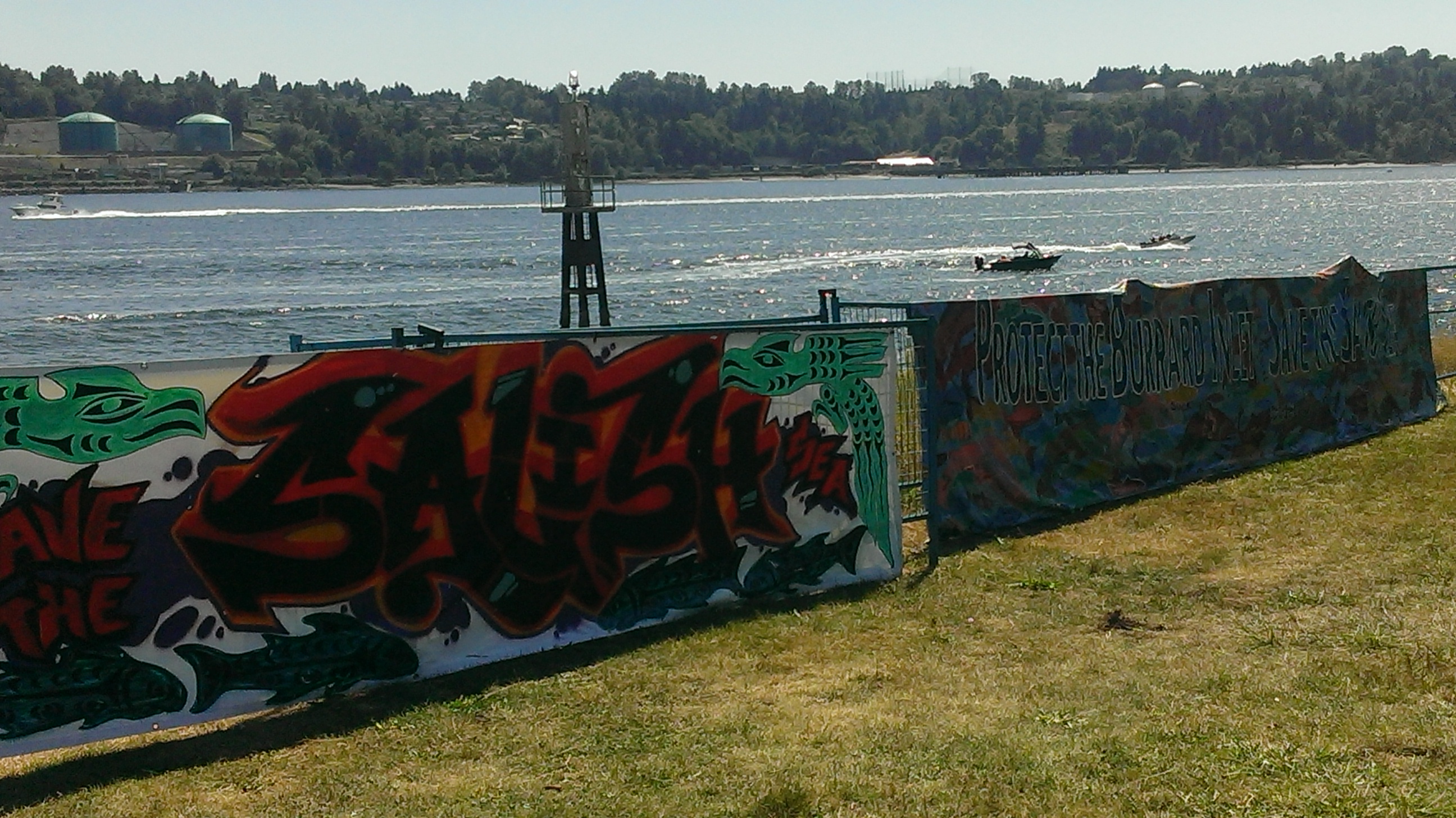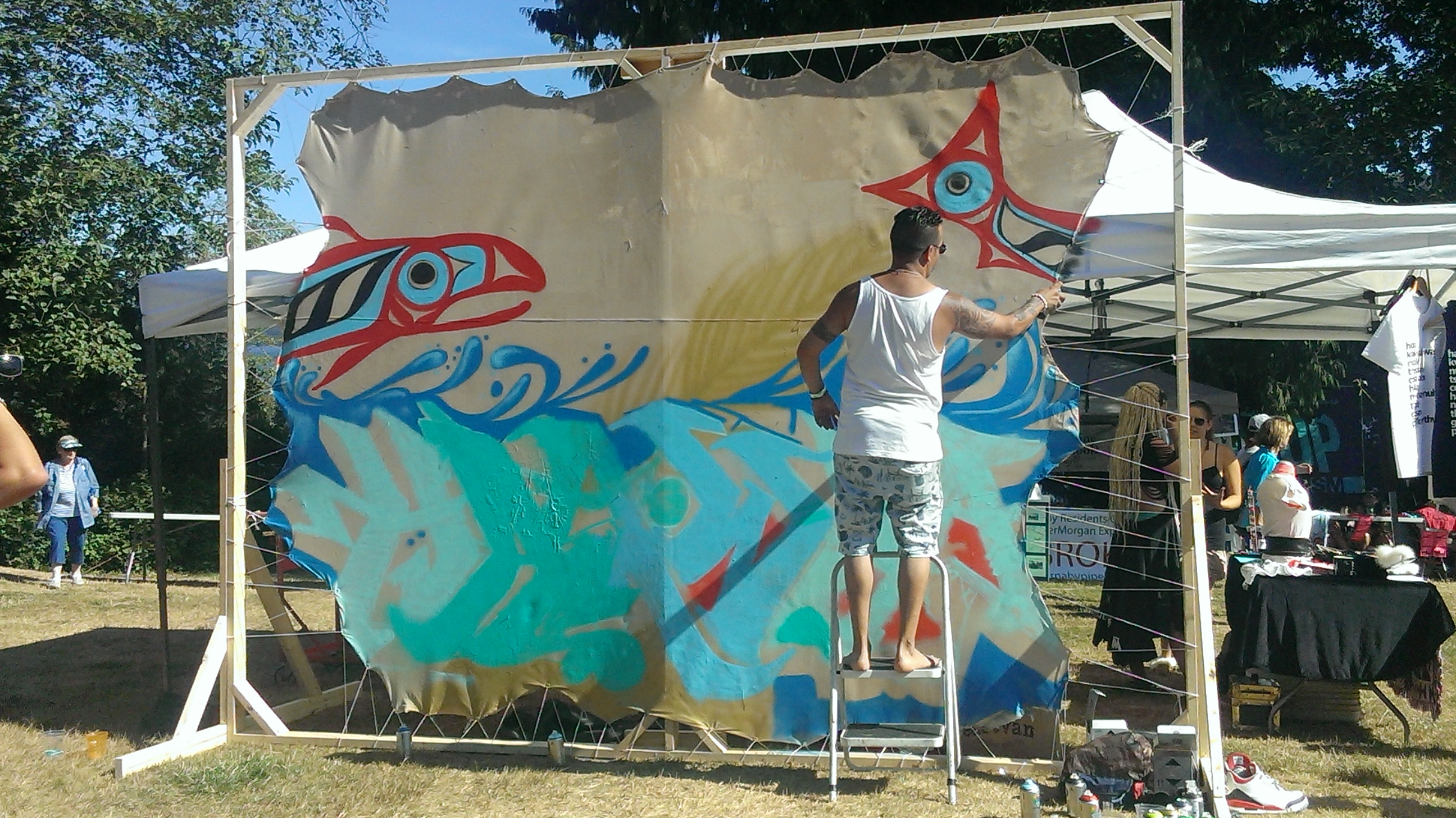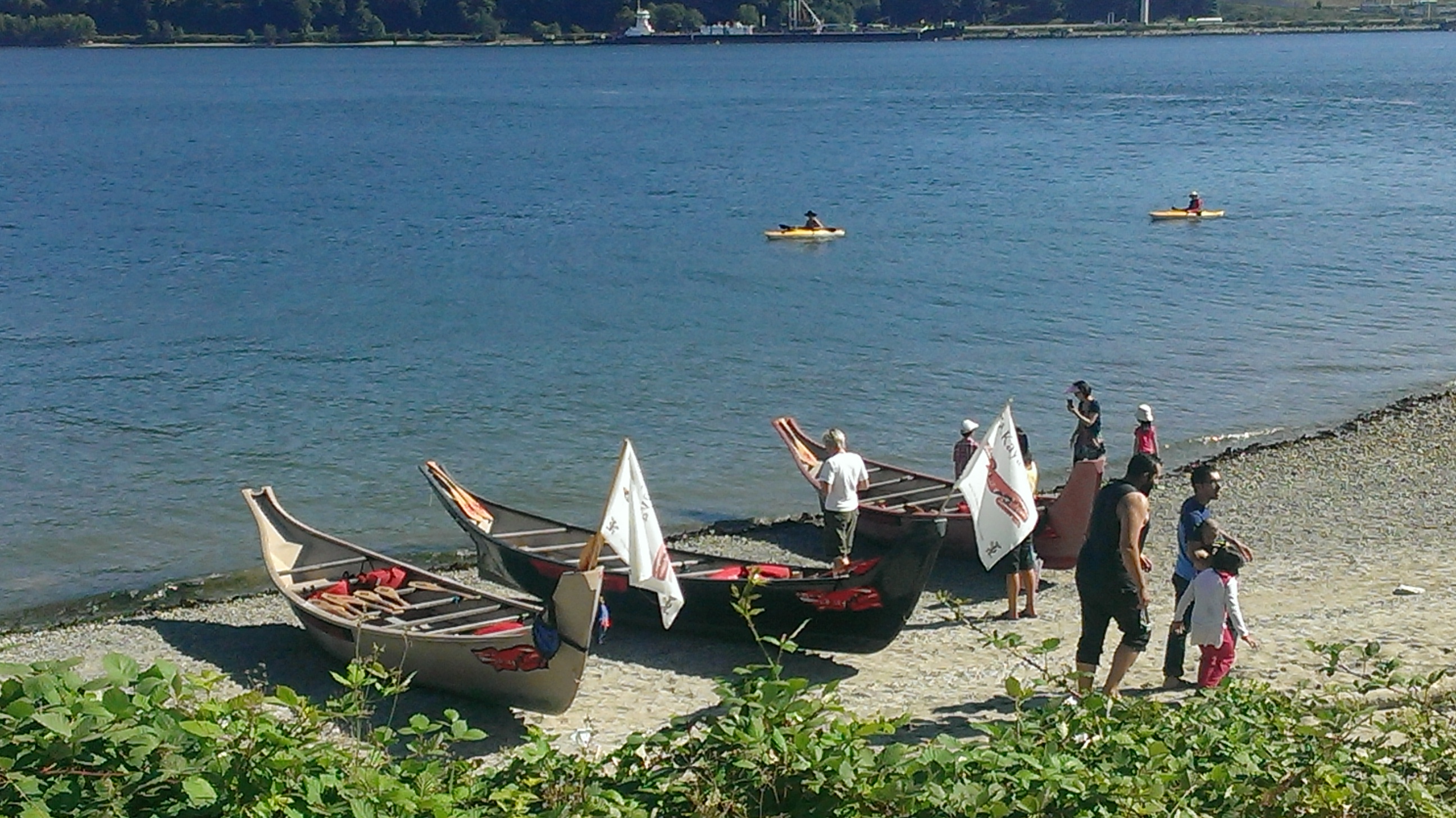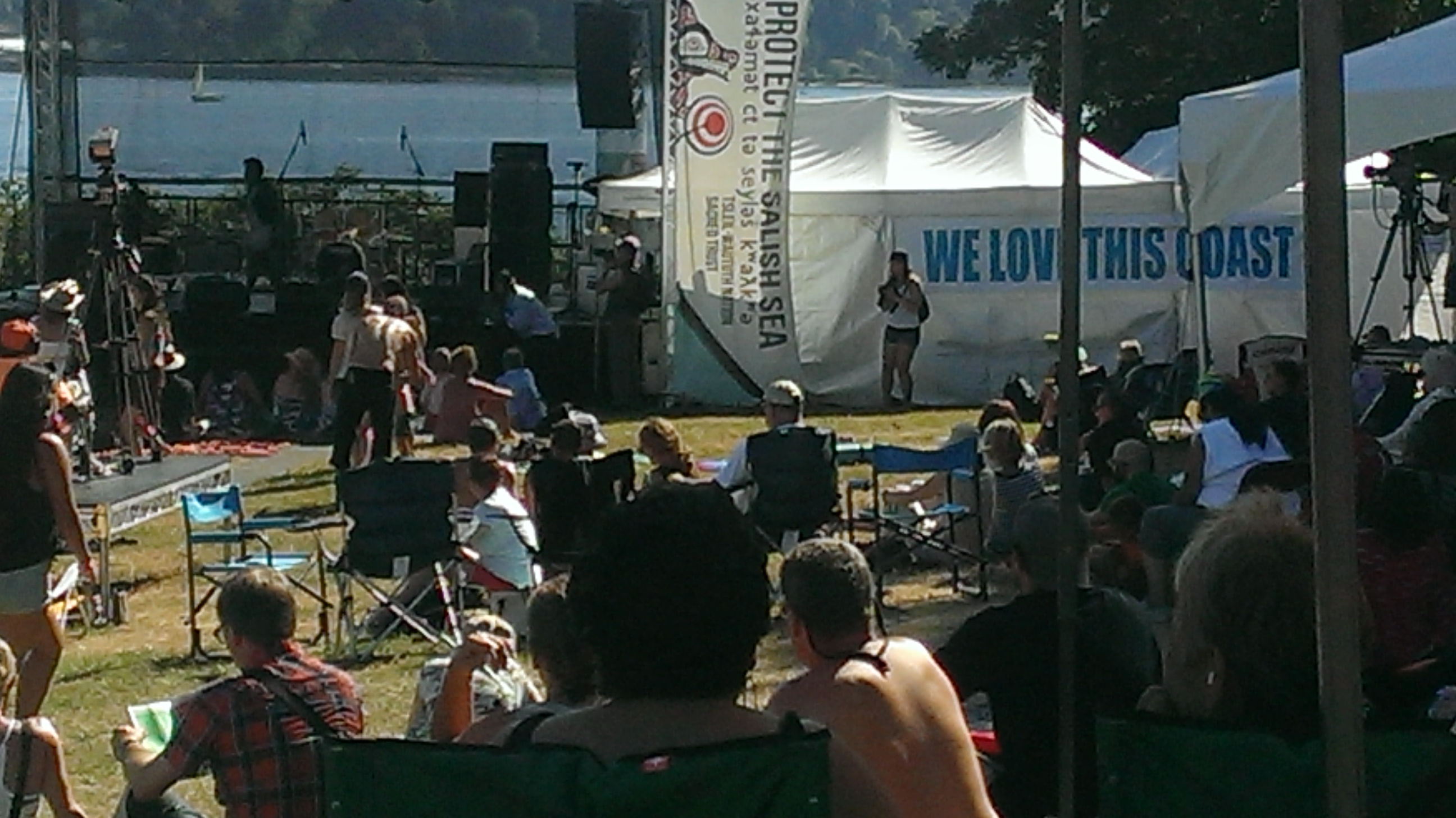Creating a vibrant community of widespread resistance begins in your own backyard. Or more accurately, on the unceded Indigenous territory that we in Vancouver reside.
Organized by the Tsleil-Waututh Nation Sacred Trust, the Third Annual Save the Salish Sea Summer Gathering at Cates Park/Whey-ah-Wichen, Sunday Aug 10, set out to demonstrate a legacy of activist culture, in preparation for a continued fight ahead against further oil and gas development and the frontline communities most affected by it.

The grounds were made up of three stages, including a poetry tent, and recognized creative expression of all styles, with a large canvass for painting, a mix of speakers and musical performances, as well as an area for children. Through its diverse stage set-up and celebratory mood, it can be seen that homage was paid to the Under the Volcano Festival that used to take place at the very same park.

The main focus of awareness and resistance at Save the Salish Sea is and has been, Kinder Morgan’s plans to twin their existing Trans Mountain Pipeline, running from the tar sands to the Salish Sea. It would mean 400 tankers a year through the coastal waters of the Burrard Inlet. However, the growing tide of resistance to all proposed and existing oil and gas development that make up the carbon corridor is clearly on the rise through the province’s consciousness.

And this consciousness is at a peak now, as the Enbridge pipeline proposal makes its way through every ill-advised government body there is, and the population becomes ever the larger in their opposition to it. Intersectionality is making its way to the public radar, as Indigenous and other frontline communities take the lead in this fight to protect our waters and all the people on them. A culture of resistance ensues.
This culture of resistance and defiance can strengthen the transition between rallies and protests that are often sectioned off on a calendar, and carrying the heart of the battle for justice throughout daily life; to work, to art shows, to live music performances. In whatever capacity and whatever form one can contribute to this movement, all areas of culture can do their part to work in solidarity with the frontline communities, who have no other choice but to carry on every single day, blocking the machines that move in and without warning.

This form of activism, in the same light as Shoutback festival, the Under the Volcano Festival and the upcoming Carnival for Climate Justice coming up Sept 27, organized by Rising Tide: Coast Salish Territories, reminds us that we do not have to be the person with the megaphone or the body on the stage, but all have something to contribute when we bring our celebratory selves to the growing culture of resistance.
Tania Ehret is a contributing editor for rabble.



